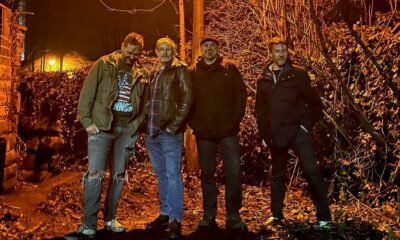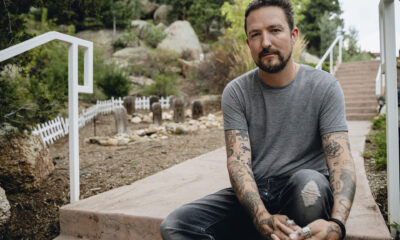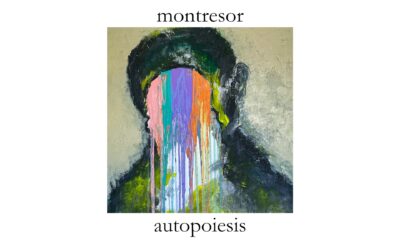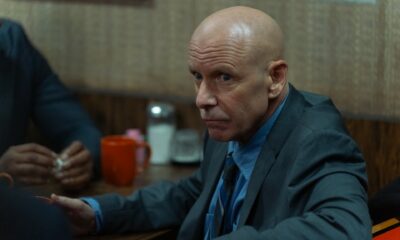Dance/Electronic
Oh Jdee Discusses the Unique Process Behind His New Album ‘A Million Years’
Jon Paul Davies, aka Oh Jdee, joins us to discuss the interesting and unique process behind the creation of his new record ‘A Million Years.’
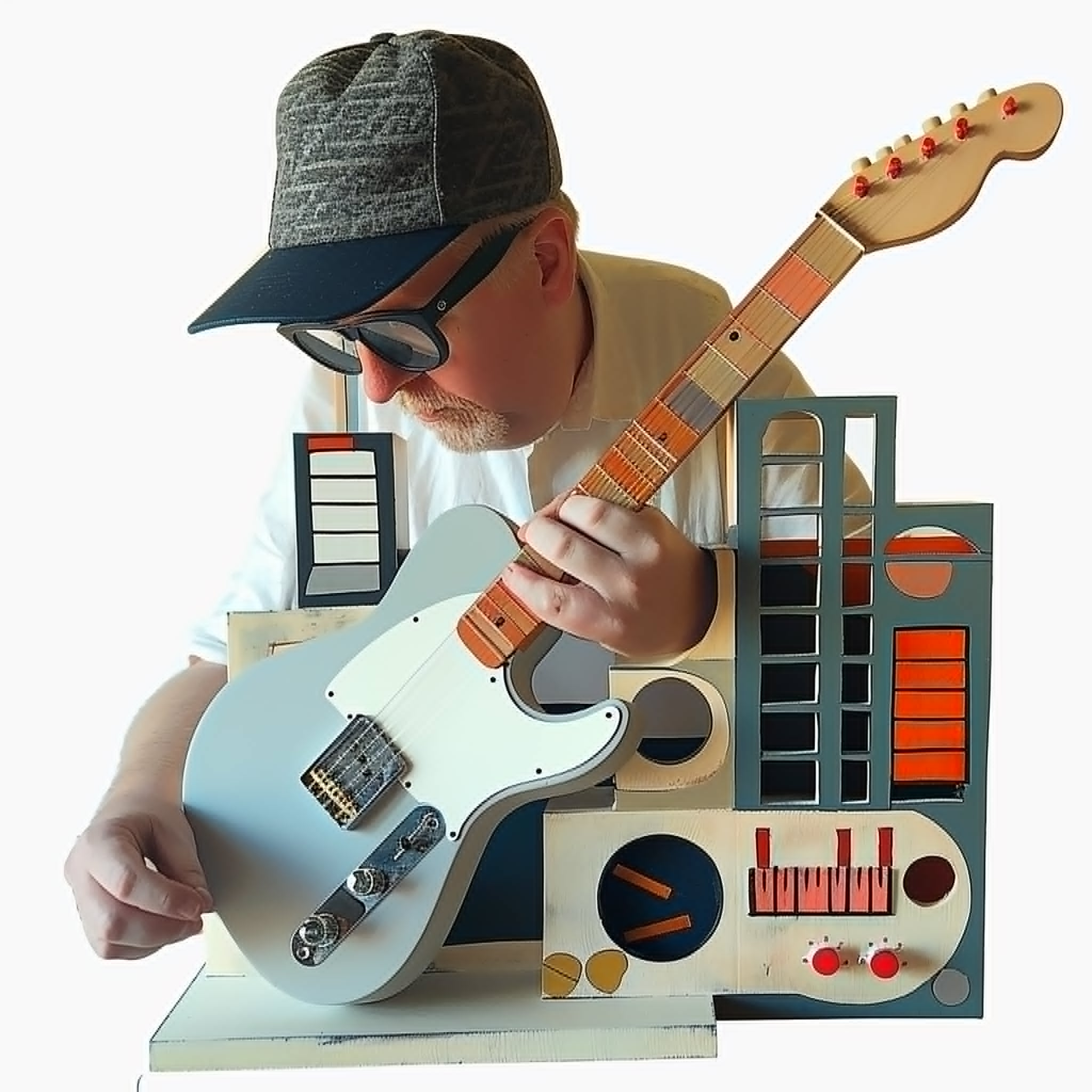
On the night of Oh Jdee’s long-awaited album release, Del Pike chats with the creator behind the project, Jon Paul Davies, and discovers how this incredible record finally landed via some surprising influences and experiments.
Jon Paul Davies has been a part of the Liverpool music scene since the mid-1980s in various forms. First, he took the stage at the Earthbeat Festival in Sefton Park as part of the rap outfit Eat My Dog. Other acts that weekend included The La’s and early incarnations of Pulp and The Stone Roses. Eat My Dog came, kicked a few arses, and went, but did manage to get as far as Paris in 1990 to play alongside Michael Head’s Shack at the Locomotive Club.
Jon returned to find greater success in 1997 as DeeJay Punk Roc, releasing a slew of well-received singles and the album Chickeneye in 1998. Although Jon created the music, much like Gorillaz, years later, he remained unseen and anonymous, and the band was fronted by American DJ Charles Gettis. The act toured internationally alongside major bands of the day, including Fun Lovin’ Criminals and The Prodigy. Further albums and projects continued until 2002. Jon also found time to remix tracks for such luminaries as The Beastie Boys, Moby, Shack and Mantronix, and re-emerged himself under such pseudonyms as Player One and Spork.
Although Jon has spent the last 20 years successfully running technology and communication businesses, he has never left music behind, building his own instruments and constantly experimenting and creating at his Liverpool home.
This month Jon released his debut album under the name Oh Jdee, entitled A Million Years. It is unlike anything he has released before. It is a beautiful collection of ambient sounds with recurring vocals from the strangest of sources and a collection of unusual instruments that should feel out of place but don’t.
The story of how Jon created the album is as fascinating as the sounds within. I have been friends with Jon since primary school. I have fond memories of many Saturdays, trawling through record shop racks, and he was always ahead of everyone in our friend group (I think they were called gangs then) when it came to discovering the most unusual and out-there bands. It was through Jon that I first heard Joy Division, The Cramps, and Nirvana, so thank you for that, Jon.
Therefore, I was very keen to hear the story behind the new album. We met up in Liverpool’s Pen Factory on the evening of the official album release date.
The album is certainly unique, and having learned of the process Jon went through to create the finished article, it’s all the more fascinating.
How has the response to the album been?
Oh Jdee: “It has been a very modern response, to be honest. Because no one cares about anyone putting music out anymore unless you’ve got an enormous social media following. Response from friends, family, and people who are familiar with my stuff has been very emotional, to be honest, because it feels like such an uphill struggle to get anything complete.
“Because of the way society and life is, the way we’re just so busy, and so run ragged – the idea that you can chisel out the time to actually do something… finish something, it’s an extreme luxury that is unreachable for so many people. So in many ways, I feel very lucky to be able to finish it.
“At the same time, I feel like it was such a crutch for me, the process, going through it, because everyone you know is struggling with mental health problems, economic problems, relationship problems. Like everyone you know is going through some shit or other. So, having this as a distraction from the things that have been going on around me is great. But now I feel like I’m in mourning a little bit, you know… the fact that it’s kind of a done thing.
“The release day today has been absolutely brilliant in terms of the response and expectation. I just wanted to replicate what happened when I put my first white label out, you know, if 500 people bought it then I’d class that as a success. The modern equivalent of that is if 500 people stream it, then it’s a success, so on that basis, it’s a success because it’s achieved that already today.
“So very mixed feelings about the whole thing to be honest, when the focus isn’t on product and bands. You know, about 120,000 new songs get released on Spotify every day, so you can’t have an expectation that anything you do is going to reach anyone. So I think as long as you go into it with that mindset, then you’re alright. It’s like being a medieval fucking jester or troubadour, you know, where the activity of making music and doing something is its own reward.”
What drove you to make it in the first place?
“I suppose it was that trying to evoke a feeling of accomplishment and just doing something. I’ve had an itch I’ve wanted to scratch for like years and years, I had a cassette tape of the jazz songs that A Tribe Called Quest sampled for all their stuff, all of the original tunes. And I had a cassette player that was knackered.
“So, I copied it onto this player and it recorded it at like 120th of the speed, and it was all chimes, xylophones, and vibraphones, all clinky sounds, but when it was played back so slow, it just became something completely different. Half the time the vibraphones sounded smooth and mellow and the other times it’s like harsh and shrill. So, it was the combination of time, the medium it was recorded onto and the original source material. When I played it back something about it was amazing… plus I like the perversity of choosing instruments like vibraphones and xylophones that have no place in modern music. To kind of mix all that together, and get something new…
“I just listened to that tape for months, it was like the only thing I listened to and then over time I thought, right, what’s going on here? How can I technically re-produce that? What can I pull out from the mess that it was, like melodies and structure and stuff? So, I ended up buying a 1950s vibraphone, something that Bossanova lads would have used or little 1950s jazz quartets. It’s got bars on it, it’s only small, and it’s in a pink suitcase. It’s got a blower underneath the xylophone so when you hit it it goes ‘wooh wooh wooh,’ so it’s got like the vibraphone built in, it’s amazing.
“But then it became a technical exercise of how do you replicate something that was recorded in the early 1960s onto a cassette tape that was like early 1980s. And the recording is fucked anyway, do you know what I mean? So it became this technical exercise where I just spent weeks and weeks with a cymascope dissecting what was going on with the sounds. When you actually look at the sounds themselves, there’s nothing to them. When you look at normal sounds, there’s loads of wiggly lines, but with a bell-based instrument. It’s made up of like three or four peaks, there’s more space than sound in it.
“So it became an intellectual challenge as well like it was a puzzle to be picked. I had to really work at it – taking the inspiration from the tape and replicating it into a musical form. So there’s a lot of perversity to it, using instruments you wouldn’t normally use and not in a jazz context either. When you think about people like Roy Ayers, Bobby Hutchinson, or Billy Cobham, jazz heads from a long time ago, I like to use that music in a non-jazz or even hip-hop context. I enjoy the perversity of that.”
What do you class this music as then?
“It’s the same as the stuff I’ve always done, it’s a collage, and it doesn’t sound like that as there’s no samples at all. It’s all instruments; everything is played and processed, but at the end of the day, it’s a collage of stuff from other places.
“A good example is, I played one of the tracks to a mate of mine, Frank, who is an amazing producer, and the first thing he said was, ‘Ah that synth sound, that’s off ‘Your Silent Face’ by New Order’ and it’s like the composite parts are like a bat signal to people who’ve got the same reference points. Its collage but its, catnip for a certain type of person I think, who understands the guitars of Siouxsie and The Banshees or the jazz source at the base of it all. It’s a cut and paste job but played in real-time.”
I really like the album and I find that much of it is quite melancholy, is that intentional?
“I think it is yeah, because it’s a reflection of where I am and UK society is. And I do believe in happy, throwaway music, but that wasn’t how I was feeling, so you have to be true to your intent. Plus, there’s so much experimentation in musical forms, that it just naturally came out that way.
“The melancholy aspects and the technological aspects are kind of bat signals again to particular kinds of people. The final track on the album, ‘Weighed Down,’ is quite melancholy and slow, but it ends with a musical form that’s called ‘Shave and Haircut 10 Cents.’ Which is ‘Da da da da da, Da da da da da, Da da da da da, Da Dah!.’ Which is a common musical trope. It felt really important to put that on the end of it. It’s a bit like, ‘I’m the same as you – Like me!’ It’s a signal, This is ultimately an attempt at communication. That’s what all good music is about; it’s to tell a story.”
There is a choir on the album. Do you want to tell us a little bit about that?
“So it’s two brothers and two sisters from South Bend, Indiana. They posted as a choir on a freelance site, and it quickly turned out that they weren’t a choir; they were trying to raise money to get their dad out on bail from a kidnap charge. So technically, the singing was all over the place, but no emotion in it. You might as well have got a fax machine to sing it. It was so straight; it was like The Kings Singers or stuff like that, just really middle-of-the-road kind of singing.
“But it was just another unexpected thing that was meant to evoke records that we would find when we used to go digging for samples for hip-hop tunes; 99 percent you found was shit like that. But you had to find a way to incorporate it and use it, so it was like a manufactured difficulty. It would have been so easy to get a soul singer or King Krule, who would have fitted it perfectly. So that difficulty in making it work again harks back to chopping it into tiny little samples to make hip-hop tunes work.
“However, I contacted them since the album came out… Gone missing. Couldn’t find them anywhere. I sent it to them to say what do you think. Because they’re on like six tracks or something. No answer.”
How can we listen to the album?
“So, I’ve made an album and the first thing people said to me was, ‘No one listens to albums anymore.’ So that’s another perverse gesture, the idea of finishing a set of tunes that work together. You can get it on double vinyl, but that’s sold out. So I’m getting more pressed, and you can get it on cassette with four extra secret tracks on it. You can get a digital version on Bandcamp, and there’ll be one single every three weeks on Spotify.
“One of the more interesting facets of it is we talk about the necessity of social media to promote it. Well, I’ve always been into technology and stuff like that. I’ve got access to AI systems that nobody else has got access to, so I’ve done animated album covers that you’ve seen, and have you heard the cover versions that I’ve done?”
[John plays me some AI cover versions that he has created]
“So it seems that with AI, time is being re-interpreted and folding in on itself all of the time. All of these things are cover versions of songs that came later, which calls into question what is real now… Frankie Goes to Hollywood in the style of Chicago, for example, so this interested me. I did 16 tracks for the album, but I only liked eleven of them. The others were alright, they could have made it, there was just something about them I didn’t like. I fed the five that didn’t make it into AI, so one of the tracks on the album is entirely AI, and nobody can tell which one it is.”
-

 Indie1 day ago
Indie1 day agoIndie Legends James Put on Unmissable Show at Leeds First Direct Arena [Photos]
-

 Alternative/Rock1 week ago
Alternative/Rock1 week agoClassic Jane’s Addiction Line-Up Captivates Sold-Out Manchester O2 Apollo [Photos]
-
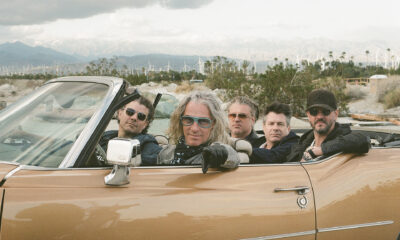
 Alternative/Rock1 week ago
Alternative/Rock1 week agoCollective Soul: “In an era where everybody in the industry is telling us not to do a double record, we were tired of hearing that…”
-

 Features1 week ago
Features1 week agoThirteen Bands You Need to See at… Download Festival
-

 Metal2 weeks ago
Metal2 weeks agoEynomia Premiere Their Symphonic New Album ‘Sea of Tears’
-
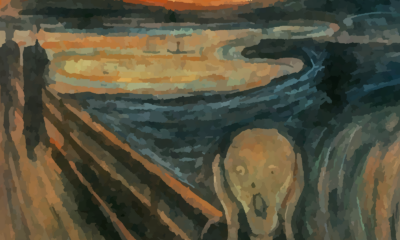
 Alternative/Rock2 weeks ago
Alternative/Rock2 weeks agoSluka – “Sunset Screamer” [Song Review]
-
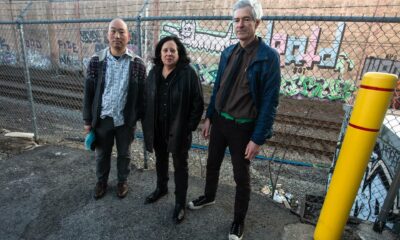
 Alternative/Rock2 weeks ago
Alternative/Rock2 weeks agoE Sets out on European & North American Tour
-
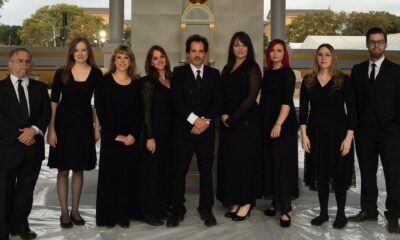
 Classical2 days ago
Classical2 days agoThe Divine Hand Ensemble Premiere Juicy “Peaches En Regalia” Music Video



